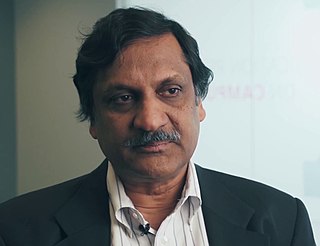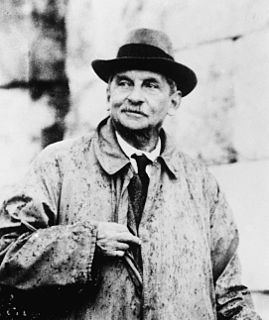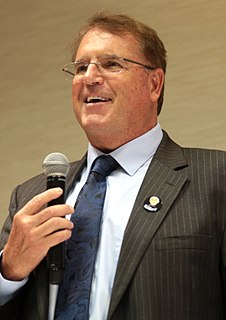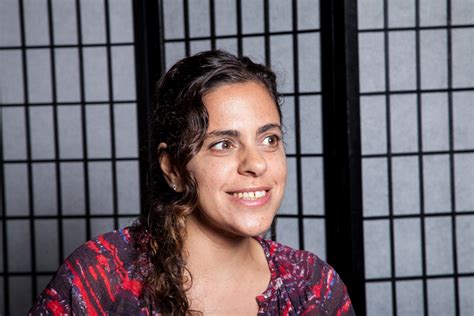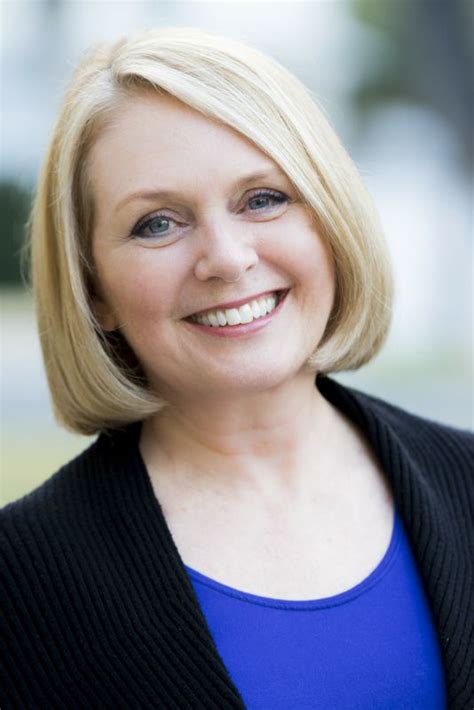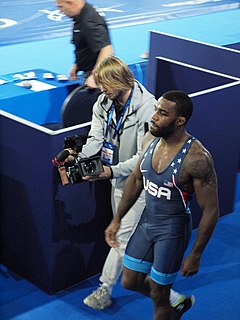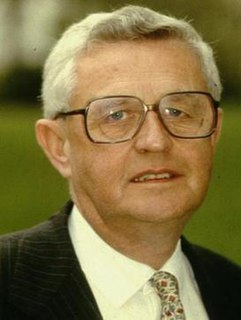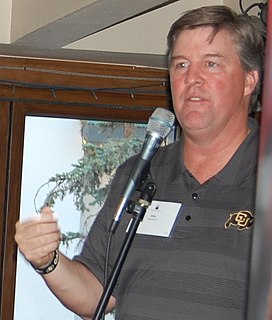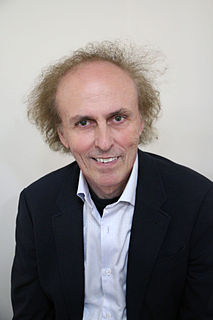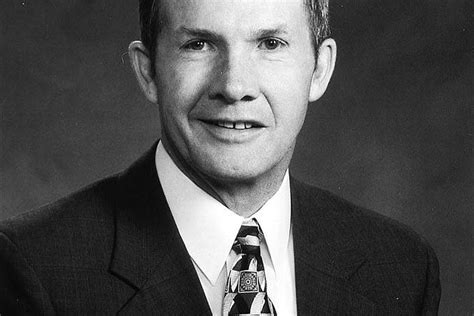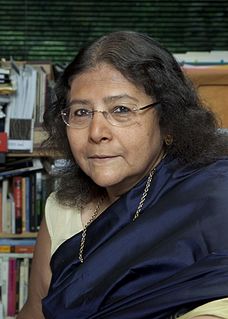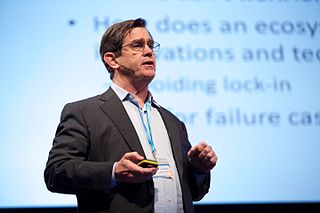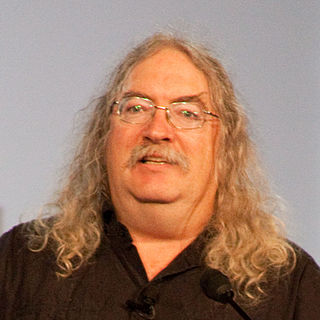Top 768 Universities Quotes & Sayings - Page 12
Explore popular Universities quotes.
Last updated on November 13, 2024.
When the nazis came to power, I looked to the universities that prided themselves upon their intellectual freedom, and they failed me. I looked to the German press, which prided itself on the freedom of the press, and it failed me. Until at last the churches stood alone, and that for which I once had little regard earned my respect.
Mr. Hillaire Belloc has pointed out that science has changed greatly, and for the worse, since it became popular. Some hundred years ago, or more, only very unusual, highly original spirits were attracted to science at all; scientific work was therefore carried out by men of exceptional intelligence. Now, scientists are turned out by mass production in our universities.
Our whole educational system, from the elementary schools to the universities, is increasingly turning out people who have never heard enough conflicting arguments to develop the skills and discipline required to produce a coherent analysis, based on logic and evidence. The implications of having so many people so incapable of confronting opposing arguments with anything besides ad hominem responses reach far.
The United States are such a large place. And there are some states and some cities where the questions of gender or sexuality would not be asked, or where scholars or academics are working in small little corners of the universities trying to raise these questions and being told that either that they're strange or not appropriate or being actively opposed. There are other places where there is very active scholarship going on. Certainly on gender.
But before any great things are accomplished, a memorable change must be made in the system of Education and knowledge must become so general as to raise the lower ranks of Society nearer to the higher. The Education of a Nation, instead of being confined to a few schools & Universities, for the instruction of the few, must become the National Care and expence, for the information of the Many.
There were many generations of Latino people coming to this country, coming from difficult political or social situations in their own countries, and they worked very hard to have their kids go to universities. Well, those kids came out and they are now doctors and architects, or they are on the Supreme Court. That has a reflection in Hollywood. So, we are actually very proud that our characters are Latinos, and I think it's good for diversity and cultural interaction.
If you look at the record and the enviable record which Sandra Day O'Connor has written, you find she was the fifth and decisive vote to safeguard Americans' right to privacy, to require our courtrooms to grant access to the disabled, to allow the federal government to pass laws to protect the environment, to preserve the right of universities to use affirmative action, to ban the execution of children in America.
I want to clarify that one doesn't need to be a scientist or have fancy college degrees to know the truth about the health of our children, our communities, and the planet. Community members generally know far more about the health of their own communities than visiting "experts," yet that knowledge is often discredited because of another story that we tell ourselves: "real" education happens [only] in the halls of universities.
We have emphasized the importance of applied action research because it allows evidence-based policy and program development and a focus on learning. We are also committed to using a participatory approach in which local people, local program managers and providers, local researchers, women's health activists, and national decision-makers play the leading role. International "experts" from technical assistance agencies or universities can make important contributions, but they certainly don't have all the answers.
Having taught economics courses at private vocational schools and universities, I have always had a problem with GNP as a yardstick of prosperity. GNP is improved by increases in questionable activities such as consumption of cigarettes and the production of weapons. Moreover, a substantial increase in car accidents will favorably affect GNP because more funerals, hospital visits, car repairs, and new car purchases will result.
Modern schools and universities push students into habits of depersonalized learning, alienation from nature and sexuality, obedience to hierarchy, fear of authority, self-objectification, and chilling competitiveness. These character traits are the essence of the twisted personality-type of modern industrialism. They are precisely the character traits needed to maintain a social system that is utterly out of touch with nature, sexuality and real human needs.
What has happened to Africa is very severe. We are talking about the collapse of this and the collapse of that, of good government, of the economy particularly. And this has hit education badly. The news you get from the universities in Nigeria is often appalling. I don't think a lot of it gets out. There is the obsession with cults and all kinds of dreadful things going on and all this is taking its toll and it is not surprising that quality of students and graduates who come out is not good. It will not be surprising if this shows in the quality of work they do.
Now all of the ideas that I'm talking about, they are not radical ideas. Making public colleges and universities tuition free, that exists in countries all over the world, used to exist in the United States. Rebuilding our crumbling infrastructure, and creating 13 million jobs by doing away with tax loopholes that large corporations now enjoy by putting their money into the Cayman Islands and other tax havens. That is not a radical idea.
I think the whole emphasis in England, in universities, on practical criticism (but not that so much as on historical criticism, knowing what period a line comes from) this is almost paralysing. In America, in University, we read - what? - T. S. Eliot, Dylan Thomas, Yeats, that is where we began. Shakespeare flaunted in the background. I'm not sure I agree with this, but I think that' for the young poet, the writing poet, it is not quite so frightening to go to university in America as it is in England, for these reasons.
An indigenous culture with sufficient territory, and bilingual and intercultural education, is in a better position to maintain and cultivate its mythology and shamanism. Conversely, the confiscation of their lands and imposition of foreign education, which turns their young people into amnesiacs, threatens the survival not only of these people, but of an entire way of knowing. It is as if one were burning down the oldest universities in the world and their libraries, one after another — thereby sacrificing the knowledge of the world's future generations.
America's universities are filled with economically ignorant haters of the free market, so university campuses have become major forums for union denunciations of such companies as Nike, Wal-mart, and others. Faculty and students claim to be concerned about 'social justice,' but they are simply being used as dupes by unions who are not at all concerned with justice of any sort. Rather, their main concern is increasing the coffers of union treasuries by driving non-union competitors from the market.
There are, however, many challenges to Asian universities. First, academic freedom, in all senses, is much more critical to the success of a university than how much money is spent on infrastructure or on hiring big names. Faculty need to have the space to pursue the research that they are passionate about and the also need to have the freedom to express their opinions in the university, and in the society as a whole.
The last publicized center of American writing was Manhattan. Its writers became known as the New York Intellectuals. With important connections to publishing, and universities, with access to the major book reviews, they were able to pose as the vanguard of American culture when they were so obsessed with the two Joes--McCarthy and Stalin--that they were to produce only two artists, Saul Bellow and Philip Roth, who left town.
Every artist, every scientist, must decide now where he stands. He has no alternative. There is no standing above the conflict on Olympian heights. There are no impartial observers. Through the destruction, in certain countries, of the greatest of man's literary heritage, through the propagation of false ideas of racial and national superiority, the artist, the scientist, the writer is challenged. The struggle invades the formerly cloistered halls of our universities and other seats of learning. The battlefront is everywhere. There is no sheltered rear.
In Germany, college tuition is free. In America, college tuition is increasingly unaffordable. In a highly competitive global economy, which country do you think will have the best educated work force and a competitive advantage? We must make tuition free in public colleges and universities and substantially reduce interest rates on student loans.
I photograph in public and semi-public spaces that date from various epochs. These are spaces accessible to everyone. They are places where you can meet and communicate, where you can share or receive knowledge, where you can relax and recover. They are spas, hotels, waiting rooms, museums, libraries, universities, banks, churches and, as of a few years ago, zoos. All of the places have a purpose, as for the most part do the things within them.
No university ought to be merely a national institution....The universities should have their common ideals, they should have their common obligations toward each other. They should be independent of the governments of the countries in which they are situated. They should not be institutions for the training of an efficient bureaucracy, or for equipping scientists to get the better of foreign scientists; they should stand for the preservation of learning, for the pursuit of truth, and in so far as men are capable of it, the attainment of wisdom.
We have the greatest resource universities in the world, the only place in the world. We have the most productive workforce in the world. We have the most agile venture capitalists in the world. We have a situation where right now in the United States of America, we are near energy independent. North America is beginning to be the epicenter of energy. What is it that makes people think that this is not going to be the American century? I don't get it.
If we agree that universities need to monitor sexual violence in various locations, and that they will require students to hew to a narrower set of rules than the wider world, how do we deal with putting these ideas into the brains of teenagers who have been schooled in the disgusting gender norms of our American culture for the previous eighteen years? This is the essential conundrum. Can we teach these relatively young dogs new tricks? I believe that we can.
The period of Catholic ascendancy was on the whole one of the most deplorable in the history of the human mind. . . . The spirit that shrinks from enquiry as sinful and deems a state of doubt a state of guilt, is the most enduring disease that can afflict the mind of man. Not till the education of Europe passed from the monasteries to the universities, not till Mohammedan science, and classical free thought, and industrial independence broke the sceptre of the Church, did the intellectual revival of Europe begin.
I had this really intense resolve. I would call universities and community colleges and say, 'I really want to go to college. How do I get to college? What do I do?' And they would say, 'You have to get an application. You have to get letters of recommendation.' It was terrifying. I had no idea what I was doing.
There's enough food in this world. There's enough housing in this world. There's enough shelter in this world. There's enough clothing in this world. There's enough teachers, there's enough universities for everybody's needs to be met, and the reasons they aren't is not because of lack of resources. It's because of distribution, and that's the politics of hate, which is why this is a movement against that. It's a politics of love.
Don't assume that the way that one searches and researches is the same from one era to another - it isn't. In the 19th century, most research was done by amateurs: either individuals who were rich or individuals who had a day job. In the 20th century, most researchers worked at universities or think tanks and received money from the government or from foundations to pursue their work. In our time, the sources of support and the locations for research may be quite different.
I've never claimed that this is investment art. When we first started out, all the art colleges and universities across the country would sort of badmouth what we were doing. It's funny that a lot of them now are sending us letters saying, 'We may not totally agree with the way you paint, but we appreciate what you're doing, because you're sending literally thousands of people into art colleges.'
For years I taught in universities and high schools for classes of 30 or 35 students. Now I teach in very large venues with thousands of people in the audience. I used to have notes. Now I just let go and let God. I just allow it to come, and I didn't do that before. I never even used the word "God" for twenty or twenty-five years. Now it just rolls out of my mouth all the time.
Speaking as someone who bought the party line for far too long, you would be amazed what you can believe if you keep convincing yourself the press, the libs, the universities - hell, everyone but a few on the religious fringe and big business - are out to get you. I was lucky - I started to snap out of this a couple of years ago and hopefully will now apply to both major parties the same skepticism and cynicism I had in the past reserved for Democrats.
We have to acknowledge that we can't look to manufacturing or natural resources to drive growth like we have in the past. Human capital, talent, and knowledge are our most important resources now. Every city has hidden seeds of opportunity waiting to be nurtured. Places like Detroit, Cleveland, and Pittsburgh are among my favorite cities. They have great universities, clusters of innovation across a range of industries, and pools of innovative and creative talent to build on.
I turn my eyes to the schools & universities of Europe And there behold the loom of Locke whose woof rages dire, Washed by the water-wheels of Newton. Black the cloth In heavy wreaths folds over every nation; cruel works Of many wheels I view, wheel without wheel, with cogs tyrannic Moving by compulsion each other: not as those in Eden, which Wheel within wheel in freedom revolve, in harmony & peace.
In vain are Schools, Academies, and Universities instituted, if loose Principles and licentious habits are impressed upon Children in their earliest years . . . . The Vices and Examples of the Parents cannot be concealed from the Children. How is it possible that Children can have any just Sense of the sacred Obligations of Morality or Religion if, from their earliest Infancy, they learn their Mothers live in habitual Infidelity to their fathers, and their fathers in as constant Infidelity to their Mothers.
Monsanto will not come empty-handed. Monsanto will come with a big bag of money. And because these governments are poor, when they are shown money for their research institutions, for their universities, for their professors, they are very quick to say yes, and I can tell you that when Monsanto came to Kenya, they were able to be given permission to do research in one of our research institutions, and yet there was not a single law to control such research.
There's a lot of rules and laws that I follow that our country has set up in the universities. So I definitely follow those. But, I can still be who I am. Still say where my faith, my trust, my inspiration comes from. We still have this freedom of speech on that side of that! So there are some conflicting situations there. But at the same time, it still goes back to my faith and who I am in Jesus Christ and not who I am - Mike MacIntyre - but who I am in Jesus Christ.
A German merchant of the fifteenth century asked an eminent professor where he should send his son for a good business education. The professor responded that German universities would be sufficient to teach the boy addition and subtraction but he would have to go to Italy to learn multiplication and division. Before you smile indulgently, try multiplying or even just adding the Roman numerals CCLXIV, MDCCCIX, DCL, and MLXXXI without first translating them.
Astrology is knocking at the gates of our universities: A Tübingen professor has switched over to astrology and a course on astrology was given at Cardiff University last year. Astrology is not mere superstition but contains some psychological facts (like theosophy) which are of considerable importance. Astrology has actually nothing to do with the stars but is the 5000-year-old psychology of antiquity and the Middle Ages.
If we want to identify the great success of American research universities, and that success goes far beyond Harvard, we have to come back to the question of governance. Excellence requires a firewall between trusteeship, or government ministries, and the academic decision-making process. This American concept of shared governance wherein the faculty are engaged in running the university as part of a collaboration with the other stakeholders.
The demise of higher education as a public good is also evident in light of the election of a number of right-wing politicians who are cutting funds for state universities and doing everything they can to turn them in training centers to fill the needs of corporations. This new and intense attack on both the social state and higher education completely undermines the public nature of what education is all about.
The great philosophers of the past who wrote so beautifully - Rousseau, John Stuart Mill - had to write beautifully because they had to sell their work to journals. They had to sell books to the general public because they could not hold positions in universities. Mill was an atheist, and, therefore, could not hold a position in a university.
Many of the most important principles of intelligence cannot by taught at universities, from books, or through other temporal learning processes. Often these great principles are learned from afflictions, tribulations, and other mortal experiences. All that we learn in this manner will benefit us not only in this life but also in the next, for 'whatever principle of intelligence we attain unto in this life, it will rise with us in the resurrection'.
In schools, including universities, most resources are spent to purchase the time and motivation of a limited number of people to take up predetermined problems in a ritually defined setting. The most radical alternative to school would be a network or service which gave each man the same opportunity to share his current concern with others motivated by the same concern.
We need a more widely shared burden on the part of society to keep asking, "What are our collective values, what kind of world do we want to bequeath to our children, and to what extent are these particular technological developments helping us go in those directions? I think that corporations, every bit as much as governments, social movements, and universities - we all have a role to play in asking those questions. I don't think anybody should have a monopoly on that responsibility.
How did scientists get money in the past? They were either lucky and independently wealthy, like Darwin, or they had patrons, like Galileo. Universities or governments have become patrons only in the last few generations. Many of the great scientists of the past were in debt to their patrons in the same sense that modern scientists are influenced by what their granting agencies want.
I have an older brother and an older sister - and they had the time of their lives at university. They were at Newcastle and Edinburgh. Looking up to them the whole time, I wanted to go to university and live the life they were living, having a blast, and I didn't get in. I didn't get into any of the universities I wanted to go to.
Like Nietzsche, Heidegger also gave up on the prospect that schools and universities would nurture the kind of reflective openness to the way of things that, certainly by the 1940s, he identified with authentic thinking. The authentic person is not the Promethean, iron-willed figure that pops up in Nietzsche, but someone more like the Daoist sages whom Heidegger admired.
I was quite straight-laced. I was quite academic until I was about 14 and then I went to boarding school where I had the opportunity to continue to be very academic, but got less interested in it and became more involved in acting. And then when I was applying for universities I used a couple of places on my UCAS form to apply for drama school without telling anyone... but didn't get into drama school. But that was the most rebellious thing I did.
No one has a monopoly on knowledge the way that, say, IBM had in the 1960s in computing, or that Bell Labs had through the 1970s in communications. When useful knowledge exists in companies of all sizes and also in universities, non-profits and individual minds, it makes sense to orient your innovation efforts to accessing, building upon and integrating that external knowledge into useful products and services.
E-learning as we know it has been around for ten years or so. During that time, it has emerged from being a radical idea---the effectiveness of which was yet to be proven---to something that is widely regarded as mainstream. It's the core to numerous business plans and a service offered by most colleges and universities. And now, e-learning is evolving with the World Wide Web as a whole and it's changing to a degree significant enough to warrant a new name: E-learning 2.0.
On a more personal note we in this country we have a very tragic situation occur at one of our universities and, it really has taken the country aback and there's a real grieving process that we're going through, And going through it mourning and learning about the victims and-learning about it and showing our support, you know, I hesitate to say, how does your country handle what is that type of carnage on a daily basis?
Men didn't like to empty bedpans, so we made women nurses. Then men didn't like to do the administrative stuff, so women were allowed to become secretaries. That's the way they entered the work force. Then we began to educate them because they had to be educated. But it wasn't until after World War II that most of the great universities of this country became coeducational.
I was born in Cuba. At the age of 14 years of age I was involved in a revolution. We were suffering from a very cruel, oppressive dictatorship, and the revolution started in the high schools and the universities. So when I was 14, I was involved in the revolution. I was in the revolution four years. During that time, a young, charismatic leader rose up in Cuba, talking about hope and change. His name was Fidel Castro.





